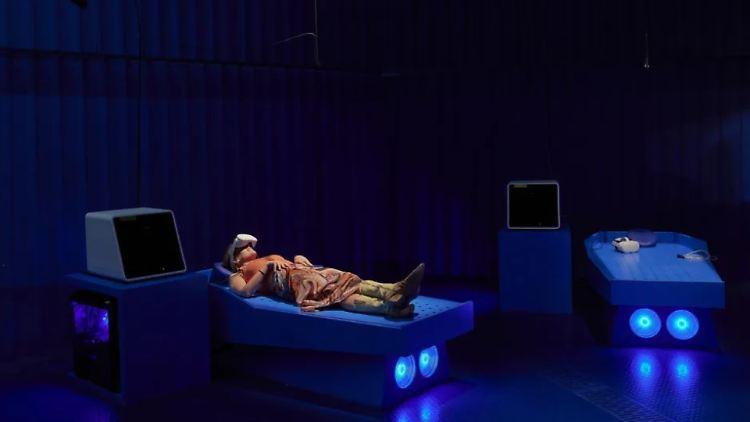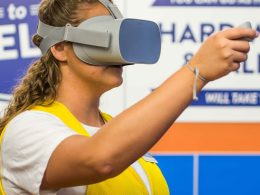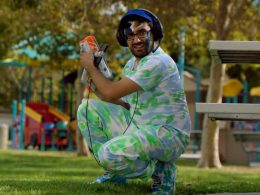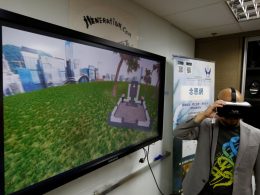Nobody knows death. Nevertheless, an Australian artist is trying to simulate dying by means of virtual reality (VR) as part of an exhibition. However, a neurologist warns: such an experience is not suitable for everyone.
Visitors to the National Gallery of Victoria in Melbourne can experience what their own death might feel like. In the Passing Electrical Storms installation by the artist Shaun Gladwell the patient's own cardiac arrest is simulated in the hospital using Extended Reality (XR).
"Meditative and disturbing at the same time, the interactive work leads participants through a simulated demise, from cardiac arrest to brain death," says the programme for the exhibition. Visitors lie down on an operating table that vibrates to the rhythm of their pulse. They put on VR goggles and are connected to a heart monitor. Through the glasses, they see a holographic image of their own body. Doctors try to revive it while you float away yourself.
By partially seeing yourself lying on the table, the experience goes beyond pure virtual reality - hence Extended Reality. According to the museum, staff are on hand to take visitors out of the simulation if the experience becomes too much for them.
A visitor tells
"It makes you think about what happens after death. You get a sense of the scale of the two universes - inside and outside our bodies," a visitor named Marcus Crook tells the "New York Post". At the same time, he could understand why the simulation caused fear and panic in some people. He himself felt a little overwhelmed, but was generally fascinated by Gladwell's art.
Experience can trigger severe crisis
Bernd Roggenwallner considers the XR experience not entirely harmless. "For psychologically disturbed people, the experience can also lead to severe crises," says the neurology specialist. For others, however, it is simply an interesting experience. Roggenwallner, meanwhile, does not believe that the VR glasses make dying tangible in a truthful way. "It simulates a dissociation, that is, a separation of body and mind at the moment of death." This is reported again and again by people with near-death experiences, but it has not been scientifically proven.
Source: ntv









